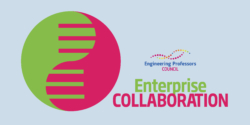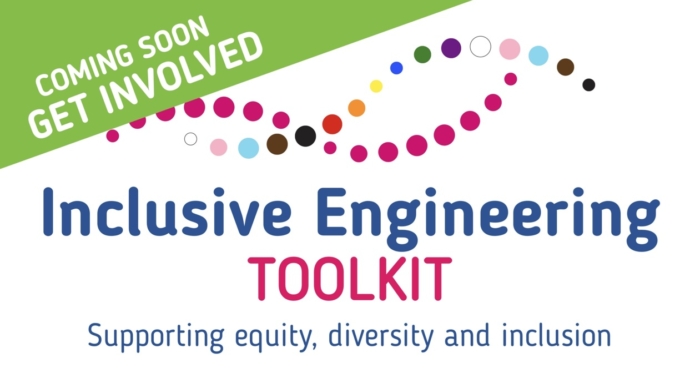 Theme: Graduate employability and recruitment, Collaborating with industry for teaching and learning
Theme: Graduate employability and recruitment, Collaborating with industry for teaching and learning
Authors: Dr Becky Selwyn (University of Bristol), David Pullinger (RINA) and Dr Irene Renaud-Assemat (University of New South Wales)
Keywords: Authentic Learning
Abstract: The academic approach to writing isn’t one that is often appropriate in industry – yet at university it is usually engineering academics who teach undergraduate engineers how to write. This is a problem frequently highlighted by industry. By working in partnership with industry to set an authentic writing challenge, we hoped to provide a sense of real-world purpose and give students a valuable formative opportunity to work on their writing skills for an industrial audience.
Aims of the activity
This case study aimed to address the discrepancy between industry expectations of student writing skills and the writing-related learning opportunities provided to students over the course of a typical degree programme at the University of Bristol.
The academics involved in this project had previously addressed poor technical writing skills among undergraduate (UG) students by providing scaffolded opportunities to practice and receive feedback on written laboratory reports in early years (e.g. [1] and [2]). However, informal conversations with an industry partner highlighted the need for students to also improve their writing skills for industrial audiences (e.g. clients or colleagues external to the immediate specialist team).
Existing written assignments are assessed mainly on their technical content, with a nominal portion of the mark awarded for writing skills. This project removed the focus from the technical work and placed it firmly on how well the recommendation is written for a specific audience, encouraging students to focus on developing their writing skills. The activity provided participants with a set of real client data to synthesise while producing a recommendation to be presented to the board of a fictional company.
Design of the activity
The activity was designed as follows:
- The industrial partner provided an introductory presentation to students. This gave examples of the types of written communication that were often required (concise evidence-based written recommendations to non-specialist clients).
- Students were provided with a package of information and asked to make a recommendation to the board of a fictional company about which wind farm to invest in. The package of information included energy yield assessments for three possible wind farms, the Renewable Energy Country Attractiveness index, a summary of the current cost of wind power, and brand guidelines to follow when producing their recommendation.
- Students were given one week to submit their recommendations.
- Students were provided with feedback on their recommendations during a final seminar. Feedback focused on the clarity and conciseness of the writing, as well as its suitability for the audience (the board members).
This was an optional activity for students, and 11 2nd year UG students took part from Mechanical, Mechanical and Electrical, and Engineering Design programmes.
Outcomes
Students were surveyed at the start and end of the activity to investigate their motivation for taking part and their experience of the activity. Before taking part, students reported two main expectations: to improve their writing skills in the context of the industrial requirements, and to support their career aspirations. This latter aim was stated either in relation to networking with the industrial partner or in relation to adding the activity to their CV.
Feedback following completion of the activity was consistently positive. Students enjoyed the real-world application and experiencing a task that was representative of tasks the industrial partner undertakes, and also appreciated the networking opportunity provided by the partnership with industry.
Reflections and future work
Students were asked what they would change about the activity next time, and two themes emerged: a request to provide more examples or guidance on the style of writing required, and embedding the activity within the compulsory units in the programme. This latter theme ties in with the ongoing work within the department to improve the way we teach and assess writing skills throughout the programme.
From an academic perspective, the workload associated with developing and running the activity (3-4 hours) was relatively small compared to the positive experience reported by the participants. Although there were only a small number of participants, the activity could be scaled up relatively easily – either by continuing to use the information package provided by a single industrial partner, or by enlisting more partners to contribute similar tasks and allowing students to complete one or more of the tasks.
Industrial partner perspective
From an industrial perspective the time commitment associated with the activity was small (3-4 hours) and was outweighed by the benefits of being able to trial techniques to improve results-oriented writing. The difficulty that students experienced in distilling relatively simple information into a concise evidence-based decision was similar to the difficulties experienced by many established professionals in industry. The typical undergraduate writing style is to tell the story from beginning to middle to conclusion leading to tendencies for writers to be verbose and indirect. In industry the style of reporting often requires the approach to be flipped whereby the conclusion is the sole focus of the writing, this requires very short, unambiguous and direct writing. The approach to writing these different types of document is altogether different and requires practise to improve the quality of the author’s reports. Giving undergraduates more opportunities to write in different styles would improve their preparedness for working in an industrial role and also be a great benefit to graduate employers by way of having more highly skilled employees.
References
[1] Selwyn, R., & Renaud-Assemat, I. (2020). Developing technical report writing skills in first and second year engineering students: a case study using self-reflection. Higher Education Pedagogies, 5(1), 19-29. https://doi.org/10.1080/23752696.2019.1710550 [2] Selwyn, B., Renaud-Assemat, I., Lazar, I., & Ross, J. (2018). Improving student writing skills using a scaffolded approach. In Proceedings of the 7th International Symposium for Engineering Education (ISEE 2018) University College London.
Any views, thoughts, and opinions expressed herein are solely that of the author(s) and do not necessarily reflect the views, opinions, policies, or position of the Engineering Professors’ Council or the Toolkit sponsors and supporters.




